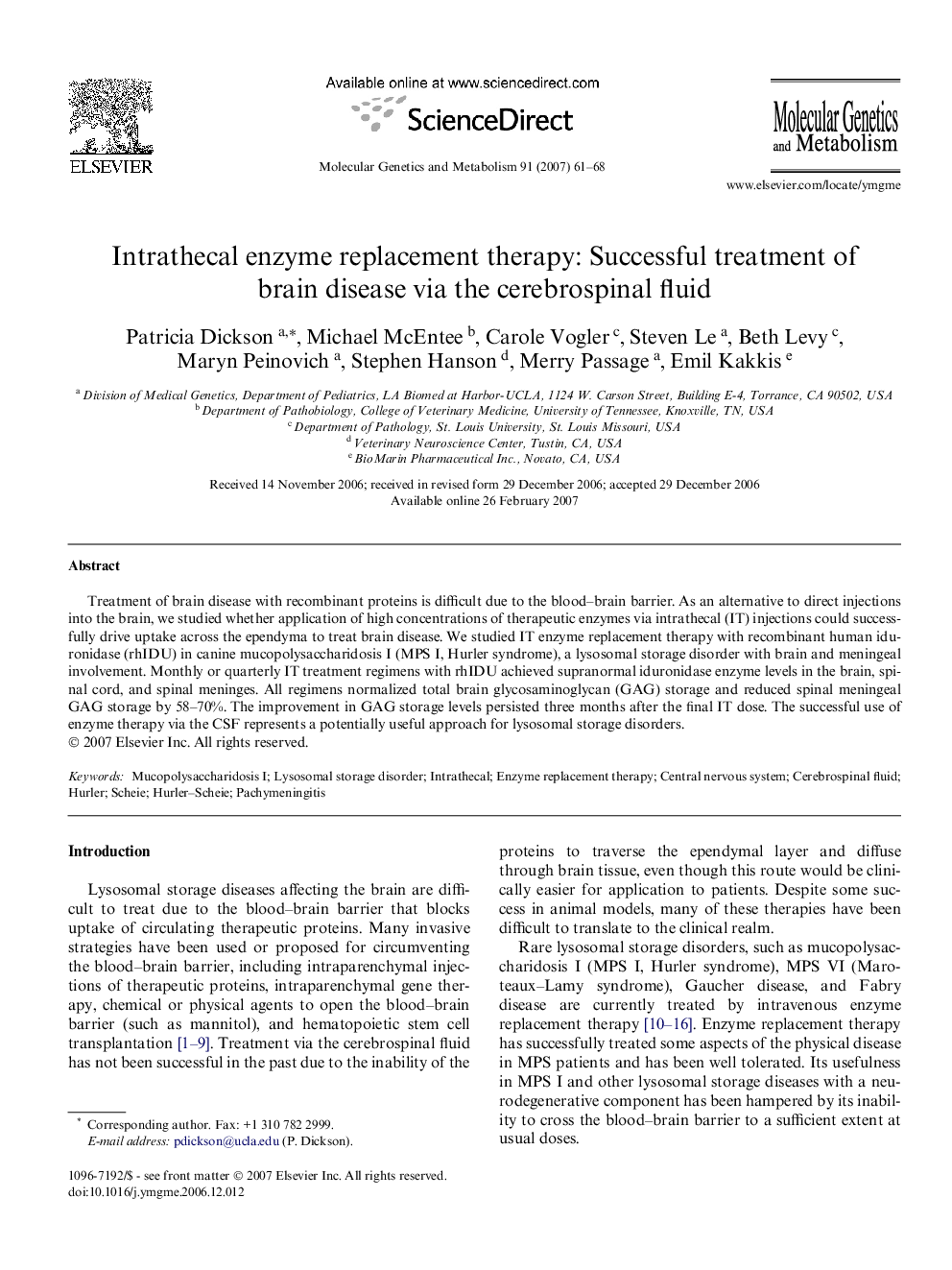| Article ID | Journal | Published Year | Pages | File Type |
|---|---|---|---|---|
| 2000127 | Molecular Genetics and Metabolism | 2007 | 8 Pages |
Abstract
Treatment of brain disease with recombinant proteins is difficult due to the blood-brain barrier. As an alternative to direct injections into the brain, we studied whether application of high concentrations of therapeutic enzymes via intrathecal (IT) injections could successfully drive uptake across the ependyma to treat brain disease. We studied IT enzyme replacement therapy with recombinant human iduronidase (rhIDU) in canine mucopolysaccharidosis I (MPS I, Hurler syndrome), a lysosomal storage disorder with brain and meningeal involvement. Monthly or quarterly IT treatment regimens with rhIDU achieved supranormal iduronidase enzyme levels in the brain, spinal cord, and spinal meninges. All regimens normalized total brain glycosaminoglycan (GAG) storage and reduced spinal meningeal GAG storage by 58-70%. The improvement in GAG storage levels persisted three months after the final IT dose. The successful use of enzyme therapy via the CSF represents a potentially useful approach for lysosomal storage disorders.
Keywords
Related Topics
Life Sciences
Biochemistry, Genetics and Molecular Biology
Biochemistry
Authors
Patricia Dickson, Michael McEntee, Carole Vogler, Steven Le, Beth Levy, Maryn Peinovich, Stephen Hanson, Merry Passage, Emil Kakkis,
